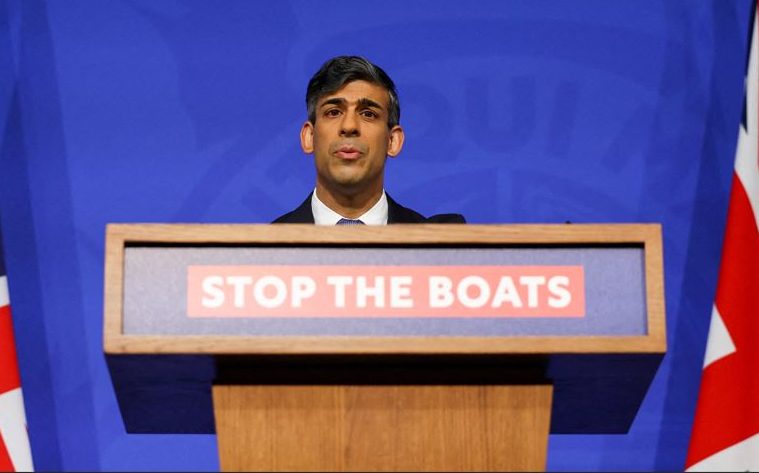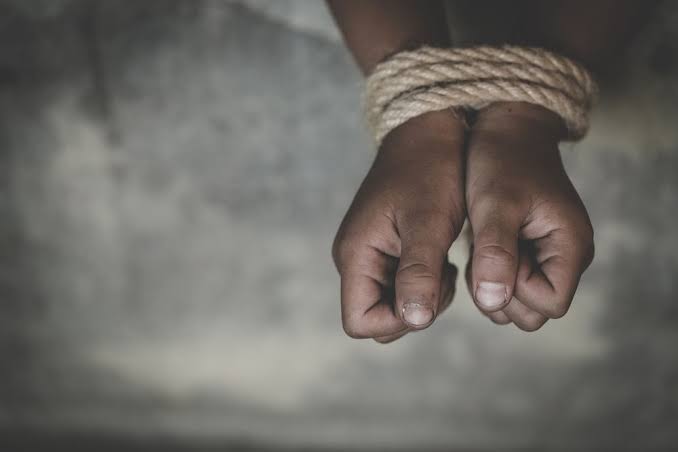Russia detains South Korean man on espionage charges

A South Korean man has been detained in Russia accused of espionage, Russian media report.
South Korea’s foreign ministry has also confirmed the arrest, saying they were trying to provide consular support.
Baek Won-soon was arrested in the far-eastern city of Vladivostok “at the start of the year”, state agency Tass reported, and is now in a Moscow jail.
He is believed to be the first South Korean detained in Russia under suspicion of espionage.
Little is known about his case, with South Korea’s foreign ministry saying “the details” were under investigation and “it is difficult to comment”.
But Russian state media Tass quoted an unnamed official in their report saying Mr Baek is alleged to have passed on information “constituting state secrets to foreign intelligence services.”
South Korean media have reported that Seoul was only officially informed by Russian authorities of the arrest last month.
Yonhap, a South Korean outlet, is reporting that Mr Baek was arrested by Russia’s Federal Security Service in January after arriving in Vladivostok from China.
The outlet said he is a religious worker and he had been accompanied by his wife, who was also detained but then later released. She is believed to be back in South Korea, the outlet reported.
Mr Baek’s detention is the latest in a series of arrests of foreigners made by Russian authorities since the war in Ukraine began two years ago. Moscow has been accused of arresting other countries’ nationals to use as a political bargaining chip and for prisoner exchanges.
Among the cases are American man and Wall Street Journal reporter Evan Gershkovich who was detained last March on espionage charges and a Russian-US journalist Alsu Kurmsasheva who was accused of spreading “false information” about the Russian military.
Tass reported that Mr Baek is being held in the same prison as Mr Gershkovich – the Lefortovo Prison. A court on Monday ruled for his detention to be extended to June, the Russian news agency reported.
South Korea has with its Western allies condemned Russia’s invasion of Ukraine and committed to a sanctions regime against Moscow. At the same time, Russia and North Korea have cultivated closer ties – with Vladimir Putin and Kim Jong un meeting in high-profile visits last year which analysts believe spawned military technology deals.
A number of meetings between Russian and North Korean officials also took place in Vladivostok last year.
Trump: TikTok ban would only help ‘enemy of the people’ Facebook

Former US President Donald Trump has criticised a congressional bill to force TikTok’s parent company to sell the app or see it banned in the US.
Mr Trump, who attempted to ban TikTok in 2020 while in the White House, said the proposal would give unfair advantages to Facebook owner Meta.
Lawmakers are debating a measure that would force TikTok parent company ByteDance to sell it by 30 September.
President Joe Biden has said he will sign the bill if it passes.
“Without TikTok, you can make Facebook bigger, and I consider Facebook to be an enemy of the people,” Mr Trump told NBC on Monday.
Asked about app’s security, the Republican presidential candidate said “there’s a lot of good and there’s a lot of bad” with the social media platform.
“There are a lot of people on TikTok that love it. There are a lot of young kids on TikTok who will go crazy without it,” Mr Trump added.
The US intelligence community has warned that the Chinese government is using TikTok in attempts to sow doubt about US leadership and undermine democracy.
In an annual report on threats to US security, released on Monday, the Office of the Director of National intelligence wrote that TikTok accounts from the Chinese government’s propaganda arm “reportedly targeted candidates from both political parties during the U.S. midterm election cycle in 2022”.
Mr Trump said in his NBC interview that he agreed with those who see TikTok as a national security threat, but argued that Facebook was also a threat to the US government.
“I think Facebook has been very bad for our country, especially when it comes to elections,” Mr Trump added.
Shares in Facebook’s parent company Meta fell sharply after the attack, dropping more than 4% on a day when stocks were generally flat. Shares in its smaller social media rival, Snap, were also lower.
Mr Trump’s comments offered a preview of the heightened political scrutiny social media firms are likely to face this year as the presidential election in November draws near.
TikTok last faced a serious campaign for a sale or ban in 2020, the last time Mr Trump and Mr Biden were vying for the White House.
At the time, American officials said they feared that data from ByteDance – a Chinese tech giant – could fall into the hands of the Chinese government.
TikTok executives deny sharing any data with Beijing, and maintain they would refuse to do so if asked.
In 2020, Mr Trump signed a presidential executive order that directed ByteDance to sell off TikTok within 90 days, but it was stymied by legal challenges.
Meta removed his accounts following the US Capitol riot in 2021.
Club for Growth, a conservative lobbying group that is close with Mr Trump, has taken a strong stand against the proposed TikTok ban.
Last week Mr Trump met a major donor to the group, billionaire hedge fund manager Jeff Yass.
Kellyanne Conway, who was one of Mr Trump’s top aides in the White House, has in recent months been lobbying for TikTok in Congress on behalf of the Club for Growth.
Meanwhile, the Justice Department, FBI and other national security officials plan on Tuesday to brief all members of the House of Representatives on TikTok, one of the most popular apps in the US, especially among younger people, according to the BBC’s media partner CBS News.
The bipartisan bill passed a congressional committee last week by a vote of 50-0.
The Senate must also vote to approve the bill before it could be signed into law.
Special Counsel Robert Hur faces Congress over Biden classified files report

US lawmakers will grill special counsel Robert Hur on Tuesday, weeks after his report into Joe Biden’s handling of classified documents shook Washington.
The report found Mr Biden “wilfully” retained troves of files, but declined to charge him with a crime.
Mr Hur said a jury would view the president as a “well meaning, elderly man” with a “poor memory”, in comments that enraged the White House.
Voter concerns over Mr Biden’s age mean Republicans will focus on the remarks.
The party has been stoking claims for months that the 81-year-old is not mentally fit to serve a second term in the White House, with polling suggesting that a significant proportion of voters are also worried about Mr Biden’s mental acuity.
Mr Hur alleged in his February report that the president struggled to recall major events from his time serving as vice-president, and could not remember when exactly his term in office had begun.
The president was quick to refute the report’s claims that he was suffering from memory issues, telling reporters: “I’m well-meaning, and I’m an elderly man, and I know what the hell I’m doing.”
While the special counsel said Mr Biden had “wilfully” retained scores of documents, some of which he stored in insecure locations including his garage, a jury was unlikely to convict him.
But Republicans have continued to attack Mr Biden and have criticised Mr Hur’s refusal to charge him, comparing it with similar charges filed against former President Donald Trump.
“Having a poor memory does not absolve you from violating the Espionage Act. Being old and elderly does not absolve you from violating the Espionage Act,” Florida Rep Byron Donalds said on Fox News on Sunday.
Dan Judy, a Republican strategist and pollster, told the BBC that the party would almost certainly use the proceedings before the House Judiciary Committee on Tuesday to contrast the two men’s treatment. He suggested that Mr Trump’s allies could seek to portray the decision to charge him and not Mr Biden as a “partisan witch-hunt”.
“Now, the details in the two cases are not analogous, but I could see Republican members trying to drive that argument,” he added. “Something along the lines of ‘you looked at this and decided not to charge President Biden and yet President Trump has been charged for the same thing.'”
In June, Mr Trump was charged with charged seven counts over his handling of classified documents after he left the White House, with a trial potentially scheduled for this summer.
House Republicans have also asked Mr Hur to turn over recordings and transcripts of his interviews with Mr Biden, which he made during his year-long investigation.
Meanwhile, the White House was reportedly furious with the references to Mr Biden’s memory, which included suggestions that he could not recall when his son, Beau, died.
Speaking after publication, a visibly angry Mr Biden refuted the assertion, telling reporters: “How in the hell dare he raise that.”
The BBC’s US partner, CBS News, reported that Biden administration officials urged Mr Hur to “revise” some of his language, calling descriptions of the president’s memory “inflammatory”. The special counsel refused to revisit the report.
Other Democrats raised questions as to whether Mr Hur’s comments were appropriate for a special counsel’s report. Eric Holder, who served as attorney general under President Barack Obama, said the references to Mr Biden’s age were “inconsistent with long standing [Department of Justice] traditions”.
“Had this report been subject to a normal DOJ review these remarks would undoubtedly have been excised,” he wrote on X, formerly known as Twitter.
But Mr Judy told the BBC that Republicans were almost certain to leverage questions around Mr Biden’s age, noting that they fit “neatly into the election year narrative about him, and is certainly the most sensational finding to come out of Hur’s report”.
US media reported that White House officials were sharply critical of Attorney General Merrick Garland, who appointed Mr Hur. Some officials, the reports suggested, said Mr Garland should have challenged passages in the report concerning the president’s age.
But speaking to CNN, former Deputy Attorney General Rod Rosenstein, who clashed with Mr Trump during his time in office, defended Mr Hur.
“Public outcry about special counsel reports is inevitable because internal reports contain embarrassing details people would prefer not to make public and subjective opinions that anyone is free to question,” Mr Rosenstein said.
Airbnb bans surveillance cameras inside rental properties

Airbnb says it is introducing a worldwide ban on the use of security cameras inside rental properties.
The changes to the company’s policy will come into affect at the end of next month.
The online rental platform says the move aims to simplify its rules on security cameras and prioritise the privacy of guests.
Airbnb users have previously voiced concerns about the use of indoor surveillance cameras.
“These changes were made in consultation with our guests, hosts and privacy experts, and we’ll continue to seek feedback to help ensure our policies work for our global community,” Airbnb’s Head of Community Policy and Partnerships, Juniper Downs said in a statement.
“As the majority of listings on Airbnb do not report having a security camera, this update is expected to impact a smaller subset of listings on the platform,” she added.
Airbnb’s current rules allow the use of security cameras in common areas such as living rooms and hallways, as long as the location of the equipment is made clear on the property’s listing.
The updated policy also bans the use of outdoor cameras that point inside properties. Airbnb does not allow surveillance cameras to be placed in private areas like bedrooms and bathrooms.
The new rules will still allow the use of doorbell cameras and noise monitors in common areas. These devices also have to be disclosed on the property’s listing page.
Airbnb said it seeks to balance the need for hosts to be able to monitor the security of their property and be aware of issues such as unauthorised parties while prioritising the privacy of guests.
The announcement comes just over a week after US comedy show Saturday Night Live aired a spoof Airbnb advert which included a joke about a camera being hidden in a toilet. The sketch has been watched 1.2 million times on YouTube.
Trump will not give a penny to Ukraine – Hungary PM Orban

Donald Trump will not fund Ukraine’s fight against Russia’s invasion if he is elected US president again, Hungarian PM Viktor Orban has said.
“He will not give a penny in the Ukraine-Russia war. That is why the war will end,” the conservative premier said after meeting Mr Trump in Florida.
The former US president has pledged to end the war “within 24 hours” if elected – but provided no details.
Mr Orban is openly backing his long-term ally in the 2024 White House race.
“It is obvious that Ukraine cannot stand on its own feet,” Mr Orban told Hungary’s M1 TV channel late on Sunday.
“If the Americans don’t give money and weapons, along with the Europeans, then the war is over. And if the Americans don’t give money, the Europeans alone are unable to finance this war. And then the war is over.”
He added that Mr Trump had “pretty detailed plans” on how to end the Russia-Ukraine war – but did not elaborate. The BBC has asked the Trump campaign for comment.
As president Mr Trump would have to sign off spending bills that come from Congress. He has in the past expressed scepticism that the US should go on funding Ukraine’s defence.
At their Friday meeting in Mr Trump’s Mar-a-Lago mansion, the former US president praised his guest. “There’s nobody that’s better, smarter, or a better leader than Viktor Orban. He’s fantastic,” he said.
During his US visit, Mr Orban did not meet current US President Joe Biden, who is expected to be Mr Trump’s main rival in the presidential elections in November.
It is highly unusual for a visiting foreign leader to schedule talks with former counterparts without calling on the current leadership.
The Hungarian prime minister has repeatedly drawn strong criticism from fellow EU leaders for maintaining close ties with Russian President Vladimir Putin, ever since he launched a full-scale invasion of Ukraine on 24 February 2022.
Unlike many other Western nations, Mr Orban refuses to send weapons to its neighbour Ukraine, stating repeatedly that Kyiv is unable to win against a nuclear-armed Russia.
EU leaders are increasingly concerned that a second Trump presidency would see a significant reduction in US military and financial aid to Ukraine and also the Nato military alliance.
A $95bn (£75bn) foreign aid bill – including $60bn in military assistance to Ukraine – has been stalled in US Congress because of Republican opposition.
The Republicans – openly encouraged by Mr Trump – say they will not allow the bill to clear the final hurdle in the House of Representatives without first agreeing additional funding for US border security.
At a rally last month he told supporters the cash should be loaned rather than given without strings.
“They want to give them $60 billion more. Do it this way. Loan them the money. If they can make it, they pay us back.”
Russian forces have recently made gains in eastern Ukraine, as Kyiv experiences acute shortages in ammunition.
Ukraine is critically dependent on weapons from the US, the main supplier, and other Western allies to keep fighting Russia – a much bigger military force with an abundance of artillery ammunition.
India to enforce migrant law that excludes Muslims— CAA

India’s government has announced plans to enact a controversial citizenship law that has been criticised for being anti-Muslim.
The Citizenship Amendment Act (CAA) will allow non-Muslim religious minorities from Pakistan, Bangladesh and Afghanistan to seek citizenship.
The authorities say it will help those facing persecution.
The law was passed in 2019 – sparking mass protests in which scores of people died and many more were arrested.
Rules for it were not drawn up in the wake of the unrest but have now been, according to the country’s home affairs minister Amit Shah.
He made the announcement on Monday, writing on social media that Prime Minister Narendra Modi had “delivered on another commitment and realised the promise of the makers of our constitution to the Hindus, Sikhs, Buddhists, Jains, Parsis and Christians living in those countries”.
India’s home ministry in a statement said that those eligible can now apply online for Indian citizenship. An online portal for receiving applications has already been set up.
The ministry said that there have been “many misconceptions” about the law and its implementation was delayed due to the Covid-19 pandemic.
“This act is only for those who have suffered persecution for years and have no other shelter in the world except India,” it added.
The implementation of the CAA has been one of the key poll promises of Mr Modi’s ruling Hindu nationalist Bharatiya Janata Party (BJP) in the run-up to general elections this year.
It amends the 64-year-old Indian Citizenship law, which currently prevents illegal migrants from becoming Indian citizens.
Under the new law, those seeking citizenship will have to prove that they arrived in India from Pakistan, Bangladesh or Afghanistan by 31 December 2014.
The Indian government has not given a date for when the law change will come into effect.
Monday’s announcement did not come as a surprise to many, as BJP leaders have been dropping hints over the past few months that the law could be implemented before the elections. After the notification was issued, BJP handles trended hashtags like “Jo Kaha So Kiya” (We did what we said) online.
In the meantime, protests against the CAA have started in some states, including Assam, where the All Assam Students’ Union (AASU) – which spearheaded the 2019 protests in the north-eastern state – has given a call for a shutdown on Tuesday.
In the southern state of Kerala, the ruling Communist Party of India (Marxist) party has called for state-wide protests. “This [the law] is to divide the people, incite communal sentiments and undermine the fundamental principles of the Constitution,” Chief Minister Pinarayi Vijayan said, adding that the law would not be implemented in his state.
Critics of the CAA say it is exclusionary and violates the secular principles enshrined in the constitution, which prohibits discrimination against citizens on religious grounds.
For example, the new law does not cover those fleeing persecution in non-Muslim majority countries, including Tamil refugees from Sri Lanka.
It also does not make provision for Rohingya Muslim refugees from neighbouring Myanmar.
There is concern that, when harnessed in tandem with a proposed national register of citizens, the CAA could be used as a way to persecute the country’s 200 million Muslims.
Some Indians, including those who live close to India’s borders, are also worried that implementing the law will lead to an influx of immigrants.
Monday’s announcement has not gone down well with the opposition, who accuse the government of trying to influence the upcoming election.
This is expected to be held by May and Prime Minister Narendra Modi is seeking re-election for a third term in a row.
“After multiple extensions in four years, its [the law’s] implementation two to three days before the election announcement shows that it is being done for political reasons,” said All India Trinamool Congress party leader, Mamata Banerjee, at a press conference.
Jairam Ramesh, the communication head of the Indian National Congress, wrote on social media that “the time taken to notify the rules for the CAA is yet another demonstration of the Prime Minister’s blatant lies”.
Asaduddin Owaisi, the leader of the All India Majlis-e-Ittehadul Muslimeen party, questioned the timing of the move.
“CAA is meant to only target Muslims, it serves no other purpose,” he wrote on X (formerly Twitter).
Haiti’s Prime Minister Ariel Henry resigns as law and order collapse

Haiti’s Prime Minister Ariel Henry has agreed to resign following weeks of mounting pressure and increasing violence in the country.
It comes after regional leaders met in Jamaica on Monday to discuss a political transition in Haiti.
Mr Henry is currently stranded in Puerto Rico after being prevented by armed gangs from returning home.
In a video address announcing his resignation, Mr Henry urged Haitians to remain calm.
“The government that I am leading will resign immediately after the installation of [a transition] council,” Mr Henry said.
“I want to thank the Haitian people for the opportunity I had been granted. I’m asking all Haitians to remain calm and do everything they can for peace and stability to come back as fast as possible.”
Mr Henry, who had led the country supposedly on an interim basis since July 2021 following former President Jovenel Moïse’s assassination, had repeatedly postponed elections, saying security must be restored first.
Many Haitians had questioned him governing the country for this long without an elected president.
Heavily armed gangs have controlled the streets of the Haitian capital of Port-au-Prince in recent days, demanding the resignation of the unelected prime minister.
Port-au-Prince and the surrounding region is under a month-long state of emergency, while a curfew has been extended.
Mr Henry had been in Kenya to sign a deal on the deployment of an international security force to help tackle violence when a coalition of gangs attacked police stations and stormed two of Haiti’s largest prisons.
A plane carrying Mr Henry was stopped from landing following sustained attacks at Haiti’s international airport.
His resignation has been expected for several days. The Caricom group of Caribbean nations had made its position clear that he was seen as an impediment to Haiti’s stability and that he would have to stand down so the move to a transitional council could begin.
The White House had initially wanted to see Mr Henry return to Haiti to oversee the transitional process, but the ferocity of fighting in the country changed minds in Washington in recent days.
Without the support of either the US state department or his neighbours, it was clear that Mr Henry had no alternative but to stand down.
Mr Henry has expressed a wish to return to Haiti but the security situation has to improve before he is able to do so, according to the US which was at the talks in Kingston on Monday.
A senior US official said Mr Henry had first made the decision to step down on Friday but he had waited for an official announcement so talks could take place.
US Secretary of State Antony Blinken committed a further $100m (£78m) to the 1,000-strong UN-backed security force Kenya is expected to lead in Haiti.
The proposed US contribution to the security force now stands at $300m following Mr Blinken’s announcement, with a further $33m allocated for humanitarian aid.
Speaking following the meeting, chairman of the Caricom group and Guyana President Irfaan Ali said: “We acknowledge his resignation upon the establishment of a transitional presidential council and naming of an interim prime minister.”
President Ali said the transitional presidential council would have two observers and seven voting members, including representatives from several coalitions, the private sector and civil society, and one religious leader.
The council has been mandated to “swiftly” appoint an interim prime minister, he said, adding that anyone intending to run in Haiti’s next elections will not be able to participate.
It is hoped the council will pave the way for the first elections in Haiti since 2016.
US will contribute $300 million to Haiti’s multinational security mission

The United States will contribute $300 million to the Kenyan-led multinational security mission to Haiti, Secretary of State Antony Blinken said Monday, as the situation on the ground continues to deteriorate.
“I’m announcing today that the United States Department of Defense is doubling its approved support for the mission from $100 million to $200 million. And that brings the total US support to $300 million for this effort,” Blinken said at the conclusion of a meeting of Caribbean states (CARICOM) in the Jamaican capital of Kingston.
It remains unclear when the security mission will be deployed. Kenya’s Interior Minister Kithure Kindiki said earlier Monday that Kenyan troops are currently in the “pre-deployment” stage.
It comes as a US worldwide threat assessment found that “gangs will be more likely to violently resist a foreign national force deployment to Haiti because they perceive it to be a shared threat to their control and operations.” The assessment underscored the challenge likely in store for the multinational security support mission.
US officials have called for the acceleration of such a force to help stabilize the volatile situation on the ground, which has seen Haiti enter a state of emergency after its capital of Port-au-Prince plunged into violence amid highly coordinated gang attacks.
People, carrying Haitian flags, march during a demonstration demanding the resignation of Haitian Prime Minister Ariel Henry in Haiti on March 7, 2024.
One gang leader, Jimmy Cherizier, has described it as an attempt to overthrow Prime Minister Ariel Henry’s government. Cherizier has warned of “a civil war that will end in genocide” if the deeply unpopular leader does not step down.
Blinken travelled to Kingston to attend the high-level CARICOM meeting in a bid to find a solution to Haiti’s political crisis. Talks are ongoing with the aim of establishing a transitional council in Haiti that could pave the way for elections in the country.
“We’re here in Kingston today to listen, to listen to your ideas, but also to provide our concrete support for the way forward and in particular, the joint proposal that was developed by CARICOM and all of the Haitian stakeholders to expedite a political transition,” Blinken said.
Blinken said the US supports “the plan to create a broad based, inclusive, independent presidential college” that would “take concrete steps to meet the immediate needs of Haitian people,” enable the “swift deployment” of the security support mission, and ultimately “create the security conditions that are necessary to hold free and fair elections, to allow humanitarian assistance to get the people who need it, and to help put Haiti back on a path to economic opportunity and growth.”
The top US diplomat also announced $33 million in “additional humanitarian assistance for the people of Haiti.” Blinken had previously announced, in Rio de Janeiro, that the US intended to provide $200 million to the multinational security support mission.
On Monday, Haiti’s government said it had extended a curfew in the country’s West region “to restore order and take appropriate measures to regain control of the situation.” The curfew will now be in effect from Monday night to Thursday morning.
The government says the police have been authorized to use “all legal means at their disposal to enforce the curfew and apprehend all offenders.”
US wants to reopen embassy in Libya

The United States wants to reopen an embassy in Libya – a decade after suspending operations there – as Russia maintains an influential foothold in the country.
In the State Department’s fiscal year 2025 request, the agency asks for $12.7 million “to enable a potential resumption of embassy operations in Libya, providing operational expenses for a planned Diplomatic Travel and Support Operations Facility as well as increased utilization of dedicated aircraft stationed in Malta for flights to Tripoli.”
“With Russia’s influence rising on NATO’s southern flank, U.S. presence with trips into Libya is vital to preserving our long-term security interests,” the budget request states.
A State Department official said Monday that the US is in “active negotiations for an interim facility that would provide appropriate security and staffing support” in the capital city of Tripoli.
The move to reopen a US diplomatic compound in Libya comes as Moscow holds significant influence in the country.
“[A] number of countries are at the tipping point of actually being captured by the Russian Federation as they are spreading some of their false narratives across Libya and from a strategic answer piece, access and influence across the whole Maghreb,” Marine Corps Gen. Michael Langley, the head of US Africa Command, warned last week. “That is NATO’s southern flank. We need to be able to have — maintain access and influence across the Mahgreb, from Morocco all the way to Libya.”
Secretary of State Antony Blinken noted in a statement Monday that the budget also requests “$3.9 billion for Diplomatic Security and related programs will protect U.S. diplomatic operations abroad, including our expanded presence in the Indo-Pacific, Libya, and Eastern Caribbean.”
The embassy in Tripoli suspended operations in July 2014 due to civil unrest, roughly two years after the attack on US facilities in the Libyan city of Benghazi. Ambassador J. Christopher Stevens and three other Americans were killed in that attack.
The US continues to advise citizens not to travel to Libya “due to crime, terrorism, civil unrest, kidnapping, and armed conflict.”
Libyan leaders agree to form new unified government

Three key Libyan leaders said on Sunday they had agreed on the “necessity” of forming a new unified government that would supervise long-delayed elections.
A political process to resolve more than a decade of conflict in Libya has been stalled since an election scheduled for December 2021 collapsed amid disputes over the eligibility of the main candidates.
The leaders are the president of the Presidential Council (PC) Mohamed Menfi, the head of High State Council (HSC) Mohamed Takala, who are both based in Tripoli, and Aguila Saleh, speaker of the House of Representatives (HoR) in Benghazi.
In a joint statement, the three leaders also called on the UN Mission in Libya and the international community to support their proposals.
They said they had agreed to form a technical committee to “look into controversial points.”
They met in Cairo at the invitation of Arab League Secretary General Ahmed Aboul Gheit.
“The measures that were agreed upon today, we believe, are a very important beginning. They are results that live up to the ambition of Libyans to hold elections,” Menfi told the media after the meeting.
Menfi came to power when the Government of National Unity (GNU) under Prime Minister Abdulhamid al-Dbeibah was installed through a UN-backed process in 2021, but the parliament no longer recognizes its legitimacy.
Dbeibah has vowed not to cede power to a new government without national elections.
The House of Representatives was elected in 2014, while the High State Council was formed as part of a 2015 political agreement and drawn from a parliament elected in 2012.
Last week, Central Bank governor Sadiq Kabir wrote to parliament asking it to approve a new unified government and a national budget over GNU extent spending.
International diplomacy to resolve the conflict in Libya has focused on pushing for parliamentary and presidential elections to replace the interim political institutions, including the HoR, HSC and GNU.
While all major political players in the country have called for elections, many Libyans doubt they genuinely seek a vote that could remove most of them from power.
Libya has had little peace since a 2011 NATO-backed uprising, and it split in 2014 between eastern and western factions, with rival administrations governing in each area. CONTINUE READING………….
VOICE AIR MEDIA – Osun Online Influencing Platform Of The Year (2023).
FOR your Advert Placement, Press Release, Press Conference, Interviews, Media & Publicity.
Contact: 08072633727 or voiceairmedia@gmail.com







